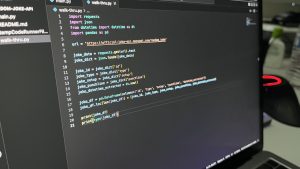1. Knowledge
This is where you:
- Know what you know
- Know what you don’t know
And you work to gain knowledge “depth”.
The more depth you know about ONE thing, the better you can get paid for what you do.
Examples:
In terms of fitness and being a personal trainer, gaining deeper knowledge would look like this:
- Know which types of exercises workout different muscle groups, ie. squats for legs, pushups for arms, treadmill for cardio and getting heart rate up.
- Then, go deeper and find out which leg exercises target different leg muscles, ie. leg extensions for quads, deadlifts for hams, glute bridge for glutes, standing calf raises for calves.
- Then, go even deeper to learn small tweaks in posture in order to target specific muscles even more, ie. by pointing toes in during leg extensions, you shift activation to vastus lateralis which build the outer part of quad, and by pointing toes out, you shift activation towards rectus femoris which builds the bulk of your quads.
In terms of being a “marketing guru”, gaining deeper knowledge would look like this:
- Know the different types of marketing campaigns, ie. commercials, billboards, PR, paid search ads, paid display ads, SEO (search engine optimization).
- Then, go deeper in one subject, ie. know the different parts of SEO like backlinking, content marketing, on-page SEO, off-page SEO.
- Then, go even deeper in one of those subjects, ie. know the different types of backlinking strategies like directory submissions, press releases, forum submissions, gov backlinks, edu backlinks, links from infographics, author bio links, etc.
When gaining “deeper” set of knowledge in one area, you are also specializing.
Specializing allows you to demand a higher rate in many cases.
Just be careful when choosing a specialization, that you choose one that is in very high demand.
2. Skill
Skill is the next level of “knowing” things.
While with knowledge, you can say “I know that”, skill allows you to say “I’m doing that”.
This is the action step of “knowledge”. This is where you’re actionizing what you already know.
Have you ever heard the saying: “It’s easier said than done”?
Well, “saying” is equivalent to “knowing” it, while “doing” is equivalent to gaining that “skill”.
Yes, you can know it, but are you actually doing, practicing, and putting into action your knowledge?
Examples:
For a personal trainer, examples of “doing” and gaining skill would be:
- Exercising and working out every day or every other day with breaks in between
- Actively going to the gym and practicing the workouts to get better at targeting muscle groups or increasing heart rate
- Having clients that you’re already training (either paid or for free in order to build up “experience”)
For an SEO marketer, examples of “doing” and gaining skill would be:
- Actively researching backlinking opportunities on the web by doing Google searches
- Creating an infographic in order to attract links to it
- Looking for 404 pages on other people’s websites, and emailing the website owners letting them know about their broken pages and giving them your website page as a suggestion for linking to instead of having the broken page
- Creating email outreaches for other backlinking opportunities
Developing skill requires you to be out there in the field doing and practicing what you know.
3. Experience
Experience is the last thing you need in order to command a higher rate of pay.
This is where you can look back and say “I’ve done that before”.
It’s past the “skill” phase where you’ve finished the task, project, or activity many times.
At this stage, you are now focused on “marketing” yourself, telling others about yourself and your skills, and educating the world on what you’ve done and the results you’ve accomplished.
Examples of this are:
- Crafting your resume bullet point items to include your past experiences and results you’ve made, then sending it out
- Writing on a blog your improvements, optimizations, and results
- Posting on social media before and after photos of your work
- Writing a book and telling a story about your experiences
- Recording a YouTube video of your work and results you’ve accomplished
- Talking to friends and family about the great things you’ve done
This is the last and final stage you would need to do in order to command higher pay. In fact, at this stage, if you’ve done everything very nicely with high quality, sometimes you won’t even need to command the higher pay – it will just come to you.
Of course, everything is done in iterations. You can always go back (and is highly recommended) to the first stage of gaining more knowledge, then practicing what you’ve learned.
Even after you’ve finished telling others about your results and accomplishments, go back to learning and getting better at what you do. Then you’ll have even more results and achievements to tell about.
Final Thoughts
If ever you feel like things are going slow and not the way you want, remember some people develop their careers and income in the span of 5-10+ years. If it’s been a day, a week, or even a month, and you feel like you haven’t accomplished anything, keep at it. Spend maybe 3-6 months at it and see if you still enjoy it after then. If you do, keep at it and keep developing your knowledge, skills, and experience.
If you’ve spent 3-6 months at it and decide that you don’t want to do it anymore, then that’s okay too! Change your path, specialization, or even entire field. If it will take 3-10+ years to fully become a master at something (which it will take), then might as well enjoy what you’re doing and developing yourself in.
No point in spending that amount of time doing something you don’t love.
Keep at it!


